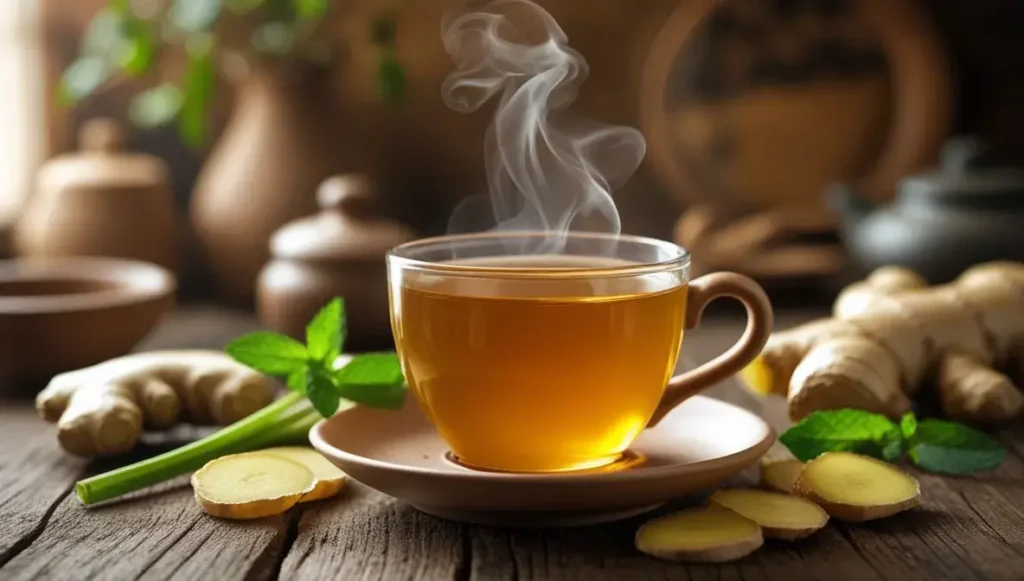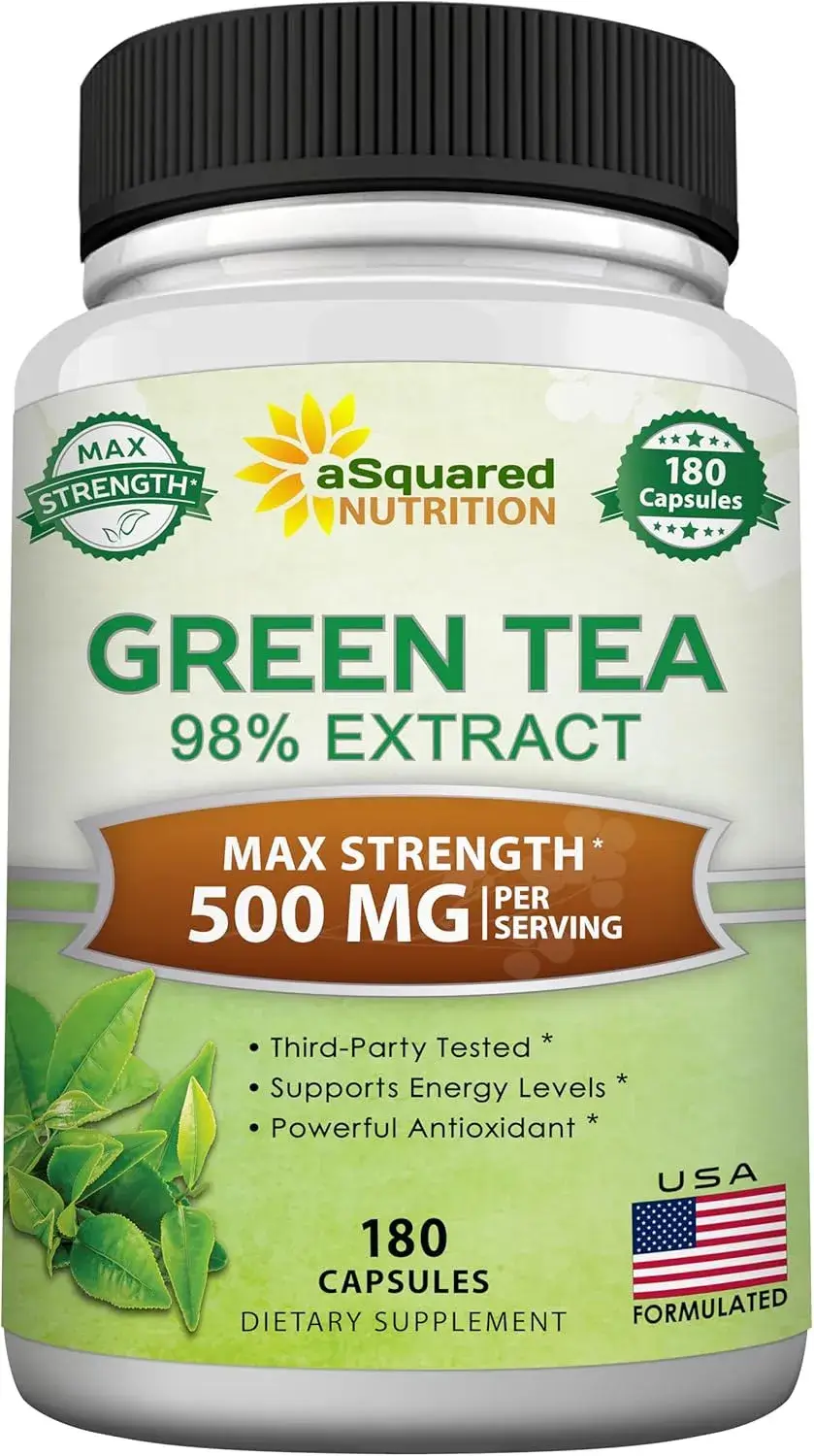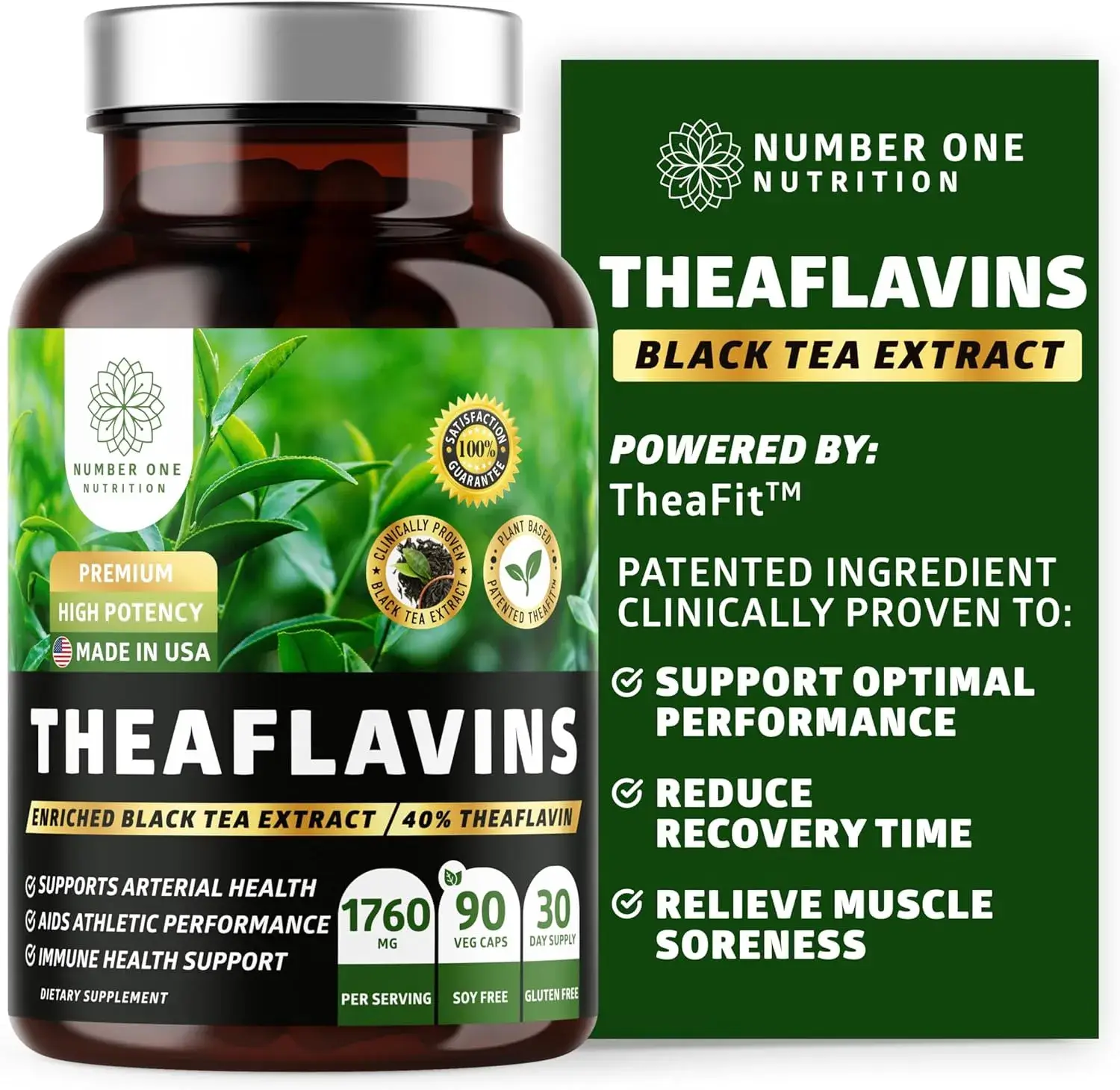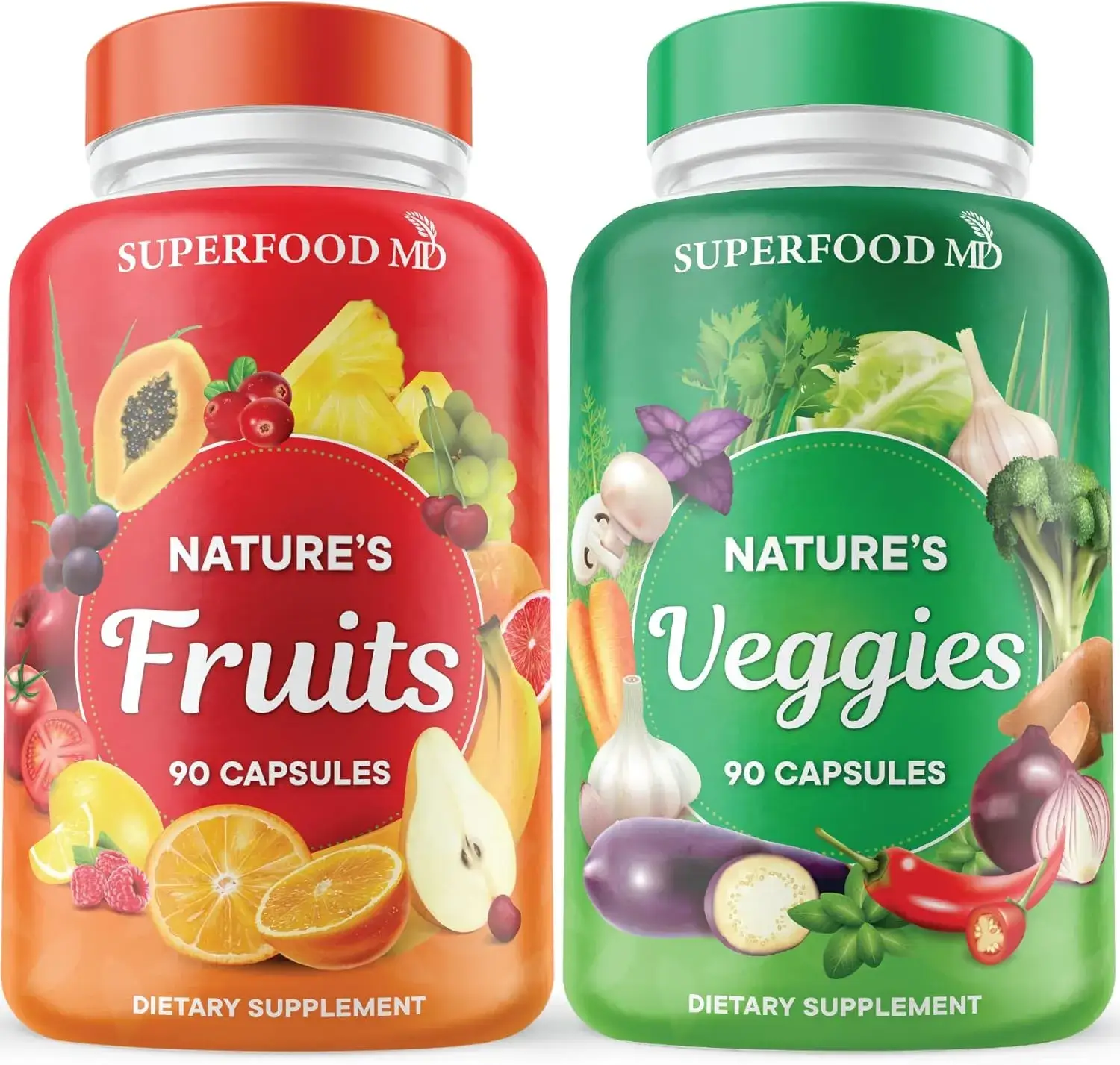Table of Contents
Ginger tea is good for what? I’ve discovered this ancient remedy offers far more than just a spicy flavor kick to brighten your mornings.
Actually, ginger has been used for over 5,000 years in China and India as a natural remedy for various ailments. This powerful root contains more than 400 natural compounds, many of which possess impressive anti-inflammatory properties. Furthermore, research suggests consuming ginger daily (in doses of 2-6 grams) may help protect against heart attacks and support cardiovascular health.
While many people reach for ginger tea to soothe nausea during pregnancy or after chemotherapy, its benefits extend far beyond stomach settling. The gingerol compounds found in ginger boast potent antioxidant properties that fight chronic inflammation linked to serious conditions like heart disease, cancer, and Alzheimer’s. Interestingly, ginger tea may also help manage body weight by increasing thermogenesis — your body’s heat production that aids in burning fat.
We’ve researched the latest science behind this remarkable beverage to bring you seven evidence-based ways ginger tea can transform your health in 2025.
Relieves Nausea and Vomiting

If you’ve ever felt queasy or experienced stomach discomfort, ginger tea might be your natural ally. Among the most well-established benefits of this spicy brew is its remarkable ability to calm an upset stomach.
What is nausea and vomiting
Nausea is that uncomfortable sensation experienced in the throat and stomach that may or may not lead to vomiting. Unlike vomiting (the forceful expulsion of stomach contents), nausea is subjective and non-observable. These symptoms affect many people for various reasons—from motion sickness and pregnancy to medication side effects and digestive issues. Notably, studies show that around 12% of people experience nausea at any given time.
How ginger tea helps relieve nausea
Ginger tea works primarily through its active compounds—gingerols and shogaols—which possess anti-inflammatory and gastrointestinal-calming properties. These powerful components:
- Help regulate digestion
- Reduce stomach contractions
- Ease queasiness by interacting with receptors in your digestive tract
- Speed stomach emptying, reducing the feeling of nausea
Fresh ginger contains abundant gingerols, whereas dried ginger has more shogaols. Therefore, ginger tea made from either form provides compounds with anti-nausea effects.
Scientific evidence supporting ginger tea for nausea
Research consistently confirms ginger’s effectiveness against various types of nausea. Multiple systematic reviews and meta-analyzes (the highest level of scientific evidence) demonstrate ginger’s superiority over placebo for nausea relief.
One meta-analysis found that approximately 1,000 mg of ginger daily for at least four days significantly improved pregnancy-related nausea and vomiting. In another clinical trial, consuming 250 mg of ginger four times daily reduced vomiting dramatically—only 33% of women taking ginger were still vomiting by day 6, compared to 80% in the placebo group.
Beyond pregnancy, research shows that ginger effectively reduces chemotherapy-induced nausea. A 2024 randomized controlled trial involving 103 chemotherapy patients found that just 84 mg of ginger daily significantly reduced nausea severity and improved quality of life.
Best time to drink ginger tea for nausea
The timing of ginger tea consumption can significantly impact its effectiveness. For morning sickness, taking ginger right when you wake up—even before getting out of bed—can help reduce the intensity. For digestive discomfort following meals, sipping ginger tea shortly after eating supports digestion and eases bloating.
When preparing for situations known to cause nausea (like travel), drinking ginger tea 30 minutes beforehand can provide preventive benefits. For optimal results throughout the day, four cups (950 ml) of ginger tea is often recommended.
Ginger tea benefits for women during pregnancy
Morning sickness affects approximately 80% of women during the first trimester. Ginger tea provides substantial relief without the concerns associated with pharmaceutical options. Studies comparing ginger to vitamin B6 (a common morning sickness remedy) found ginger equally effective or sometimes superior.
Research indicates that consuming up to 1 gram of ginger daily appears safe during pregnancy. This equals approximately 4 cups (950 ml) of ginger tea, 1 teaspoon of freshly grated ginger, or two 1-inch pieces of crystallized ginger.
Precautions when using ginger tea for nausea
Despite its benefits, certain precautions are essential. Ginger tea should not be consumed after 37 weeks gestation. Additionally, those with a history of miscarriage, vaginal bleeding, or clotting disorders should avoid ginger due to potential bleeding risks.
Some individuals may experience mild side effects like heartburn, reflux, or diarrhea, particularly when consuming more than 1 gram daily. If nausea persists or worsens, especially with vomiting that leads to dehydration, medical attention should be sought instead of relying solely on ginger tea.
Before using ginger tea medicinally during pregnancy or alongside medications, consulting with a healthcare provider is prudent since ginger may interact with blood-thinning medications and certain treatments.
Supports Digestive Health

“A recent systematic review of ginger’s effects on human health supports its ability to help treat a range of ailments, such as gastrointestinal function, pain, inflammation, metabolic syndromes, and more.” — Harvard Health Publishing, Harvard Medical School’s consumer health division
Beyond soothing nausea, ginger tea offers remarkable support for your entire digestive system. From enhancing nutrient absorption to alleviating uncomfortable bloating, this aromatic brew might become your digestive system’s new best friend.
What is digestive health
Digestive health refers to the optimal functioning of your gastrointestinal tract, which breaks down food, absorbs nutrients, and eliminates waste. Poor digestive health can manifest as bloating, cramping, gas, indigestion, and irregular bowel movements. These issues affect millions worldwide, with conditions like irritable bowel syndrome (IBS) and inflammatory bowel disease (IBD) becoming increasingly common.
How ginger tea aids digestion
Ginger tea supports your digestive system through multiple mechanisms. The active compounds in ginger—particularly gingerols and shogaols—work together to:
- Promote gastric motility (the movement of food through your digestive tract)
- Stimulate digestive juices for better nutrient breakdown
- Decrease pressure on the lower esophageal sphincter
- Protect the gastric lining while reducing stomach acid reflux
- Speed up stomach emptying, reducing feelings of fullness
These actions collectively support proper digestion, helping food move efficiently through your system while minimizing discomfort.
Scientific evidence on ginger and digestion
Research consistently demonstrates ginger’s effectiveness for digestive issues. A 2024 review found that ginger supports digestive health in people with IBS and IBD by promoting gastric motility, stimulating digestive juices, and relieving gastrointestinal discomfort.
For individuals with functional dyspepsia (indigestion), clinical trials show impressive results. One double-blind, randomized study confirmed that ginger significantly reduced symptoms compared to placebo. Moreover, a comprehensive review revealed that ginger substantially increased stomach emptying in dyspepsia patients versus those receiving placebo.
Concerning IBS specifically, a systematic review analyzing 12 randomized controlled trials with 811 participants found that ginger significantly decreased symptoms like bloating, diarrhea, and frequent stools compared to placebo.
Best time to drink ginger tea for digestion
The timing of your ginger tea consumption can maximize its digestive benefits:
- Before meals: Drinking ginger tea 30 minutes before eating can stimulate digestion and reduce your risk of heartburn and indigestion
- During meals: Sipping while eating helps protect against problems like heartburn
- After dinner: Consuming ginger tea following your evening meal aids digestion and gut motility
- Before bed: As a caffeine-free option, ginger tea before sleep can comfort muscle aches while supporting overnight digestion
Starting your day with warm ginger tea can further boost digestion, improve circulation, and awaken your body by stimulating metabolism and promoting gut health.
Ginger root tea benefits for bloating
Bloating—that uncomfortable fullness and abdominal distension—responds particularly well to ginger tea. Ginger root tea works to reduce bloating by:
- Speeding up gastric emptying, preventing food from lingering too long
- Reducing indigestion, which is one of the top causes of bloating
- Easing cramping and gas through its antispasmodic properties
- Promoting proper intestinal movement, preventing stagnation
People prone to bloating may benefit from adding ground ginger to their morning beverage to prevent discomfort throughout the day.
Precautions for sensitive stomachs
Despite its benefits, ginger tea isn’t suitable for everyone. Some individuals experience side effects, although they’re relatively rare. Possible reactions include:
- Heartburn due to acid reflux
- Mild stomach upset or abdominal pain
- Diarrhea, particularly when consuming more than 1 gram daily
- Gas or bloating in sensitive individuals
It’s worth noting that while ginger tea supports digestive health, it doesn’t “cleanse” the stomach or participate in our body’s natural detoxification processes. Additionally, natural remedies like ginger tea may help with minor digestive issues but cannot treat serious stomach conditions. For persistent digestive problems, consulting a gastroenterologist is essential.
To prepare effective ginger tea for digestive health, simply grate a knob of peeled ginger and steep it in boiling water for 10-20 minutes. Strain and enjoy plain or with lemon, honey, or cayenne pepper for added benefits.
👉 Discover the Ultimate Ginger Tea Experience with Premium Flavor 👈
Reduces Inflammation and Pain

Struggling with persistent pain or inflammation? Ginger tea could be the natural solution you’re looking for. This ancient remedy offers powerful relief through its unique bioactive compounds.
What is inflammation and chronic pain
Inflammation occurs when your immune system responds to damage or irritation. While acute inflammation helps healing, chronic inflammation leads to persistent pain and tissue damage. This prolonged inflammatory response underlies conditions like arthritis, menstrual cramps, and muscle soreness. Chronic pain—discomfort lasting beyond normal healing time—affects millions worldwide, often stemming from ongoing inflammation.
How ginger tea reduces inflammation
Ginger’s pain-relieving capabilities come from its active compounds—gingerols and shogaols—which work through multiple pathways:
- Inhibit prostaglandin production via COX-2 and LOX pathways (similar to NSAIDs but without their side effects)
- Reduce pro-inflammatory cytokines like TNF-α and IL-1β
- Act as vanilloid nociceptor agonists, which become desensitized after continued activation, leading to pain reduction
- Decrease nitric oxide synthesis and inhibit arachidonic acid release
In essence, ginger tea fights pain at its source rather than merely masking symptoms.
Scientific studies on ginger’s anti-inflammatory effects
Research consistently validates ginger’s effectiveness for pain management. One striking study found that consuming 2 grams of ginger daily for 11 consecutive days significantly reduced exercise-induced muscle pain. For arthritis sufferers, ginger has demonstrated comparable effects to ibuprofen in reducing pain scores.
Remarkably, a meta-analysis revealed that ginger was “modestly effective and reasonably safe” for osteoarthritis pain management. Data from 593 participants showed those using ginger experienced a 30% greater reduction in pain than placebo groups.
Best time to drink ginger tea for pain relief
For optimal anti-inflammatory benefits:
First thing in the morning: Kicks off your day with anti-inflammatory support During menstruation: Consume from the first to third day when cramps are typically most severe After exercise: Helps reduce muscle soreness and inflammation Before bed: May help reduce nighttime pain and improve sleep quality
Daily consumption provides cumulative benefits, as studies show meaningful results typically emerge after consistent use.
Ginger tea benefits for women with menstrual cramps
Dysmenorrhea (menstrual pain) affects up to 91% of women, seriously impacting quality of life. Ginger tea offers remarkable relief by inhibiting prostaglandins that cause uterine contractions and pain.
Clinical evidence supports this traditional remedy. A systematic review found that 750-2000mg of ginger effectively reduces menstrual pain during the first 3-4 days of the cycle. Even more compelling, studies have demonstrated that ginger works equally well as mefenamic acid and ibuprofen for menstrual pain relief.
Precautions for people with arthritis
Though generally safe, certain considerations exist:
First, while ginger has an excellent safety profile compared to NSAIDs (with fewer gastric side effects and kidney risks), some individuals may experience mild heartburn, reflux, or diarrhea when consuming more than 1 gram daily.
Second, those taking blood thinners should exercise caution since ginger may enhance anticoagulant effects. Likewise, people with low blood pressure should monitor their response.
Finally, start with smaller amounts to assess tolerance before increasing to therapeutic doses (typically 510–1,000 mg daily).
For most people, however, ginger tea represents a safe, effective approach to managing inflammation and pain without the adverse effects associated with long-term pharmaceutical use.
Boosts Immune Function
“Ginger also has antimicrobial properties, meaning it can help combat bacteria, viruses and other harmful microbes.” — ScienceAlert Editorial Team, Science news publication, reporting on peer-reviewed research
Facing cold and flu season demands more than just hope—it requires active immune support. I’ve found ginger tea offers a powerful defense through its natural compounds that work alongside your body’s protective mechanisms.
What is immune function
Your immune system serves as a complex network of cells, tissues, and organs that defend against harmful pathogens. This sophisticated system identifies and eliminates viruses, bacteria, and other threats through coordinated responses. Optimal immune function depends on both innate immunity (your body’s first line of defense) and adaptive immunity (specialized responses to specific threats).
How ginger tea supports immunity
Ginger tea strengthens immune defenses through multiple mechanisms:
- Vitamin and mineral boost: Ginger provides iron, magnesium, vitamins B6 and C, and zinc—essential nutrients that help strengthen your immune system
- Antioxidant action: The powerful antioxidants in ginger combat inflammation and oxidative stress, supporting overall immune health
- Immunomodulatory effects: Compounds like gingerol stimulate immune system function by increasing white blood cell production and activating macrophages
- Anti-inflammatory properties: By reducing inflammation, ginger helps maintain immune system efficiency
These components work in concert to enhance your body’s natural protective abilities.
Scientific evidence on ginger’s antiviral properties
Research increasingly confirms ginger’s impressive antiviral capabilities. In fact, fresh ginger effectively inhibits human respiratory syncytial virus (HRSV) by blocking viral attachment and internalization. The study demonstrated that 300 μg/ml fresh ginger could decrease viral plaque formation to just 12.9% when given before viral inoculation.
Furthermore, laboratory studies show ginger exhibits potent antimicrobial properties against many microorganisms. Its effectiveness extends to common cold viruses as well—gingerol helps ease typical symptoms including muscle fatigue and sore throat.
Notably, fresh ginger outperforms dried ginger in antiviral activity. One study found fresh ginger could decrease plaque counts to 19.7% (in A549 cells) and 27.0% (in HEp-2 cells) of control groups, underscoring the importance of preparation method.
Best time to drink ginger tea during flu season
Throughout flu season, consuming ginger tea consistently provides optimal protection. I recommend starting your day with a cup to activate immune responses early. Subsequently, another cup mid-afternoon can maintain defense levels when exposure risk increases in public settings.
For acute situations, drinking ginger tea at the first sign of symptoms may help reduce their severity and duration. According to research, ginger’s antimicrobial properties can help prevent certain microbes from replicating in your body and causing cold symptoms.
Lemon and ginger benefits for immunity
The combination of lemon and ginger creates a powerful immune-boosting remedy. Lemon contributes significant vitamin C and antioxidants with immunity-enhancing properties, whereas ginger provides antibacterial protection. Together, they create a synergistic effect greater than either ingredient alone.
This pairing has become increasingly popular for good reason—research indicates that combination extracts may have more antiviral potency than individual components. Each ingredient addresses different aspects of immune support, creating comprehensive protection.
Precautions during illness
Although ginger tea offers substantial immune benefits, certain considerations exist. Firstly, while consuming up to 4 grams of ginger daily is generally considered safe, exceeding this amount might cause side effects like heartburn or digestive discomfort.
Secondly, individuals on blood thinners or blood pressure medications should consult healthcare providers before increasing ginger consumption due to its potential blood-thinning effects. Lastly, remember that whereas ginger tea supports immune function, it cannot replace medical treatment for serious infections or conditions.
👉 Sip the Superior Ginger Tea Blend Trusted by Thousands Daily 👈
Helps Regulate Blood Sugar

Managing blood sugar levels remains a crucial health concern for millions worldwide. I’ve discovered that ginger tea offers promising benefits for those monitoring their glucose levels—backed by science and traditional wisdom.
What is blood sugar regulation
Blood sugar regulation involves maintaining glucose levels within a normal range through insulin production and cellular response. Diabetes, a metabolic condition affecting how your body produces or responds to insulin, impacts this process. This chronic disease requires continuous management to prevent complications. Indeed, the World Health Organization recognizes high blood glucose as the third leading cause of premature mortality.
How ginger tea affects blood sugar levels
Ginger tea helps regulate blood sugar through several mechanisms:
- Improves insulin sensitivity, helping cells better respond to insulin
- Enhances carbohydrate and lipid metabolism acceleration
- Contains compounds like 6-gingerol that inhibit key enzymes related to type 2 diabetes
- Provides antioxidant protection against diabetes complications
These actions help stabilize glucose levels and support your body’s natural regulatory processes.
Scientific studies on ginger and diabetes
Research increasingly supports ginger’s role in blood sugar management. A 2019 systematic review found that although ginger didn’t significantly impact fasting blood sugar, it markedly improved HbA1c levels—indicating better long-term glucose control. Additionally, a separate study demonstrated that consuming 2g of ginger powder daily for 12 weeks resulted in significant reductions in fasting blood sugar and HbA1c levels.
Even more impressively, a meta-analysis examining 10 randomized controlled trials revealed that ginger supplementation significantly lowered fasting blood glucose by 21.24 mg/dL and reduced HbA1c by 1.00.
Best time to drink ginger tea for blood sugar control
For optimal blood sugar management, consistency matters more than timing. Nevertheless, drinking ginger tea before meals may help improve glucose control by preparing your digestive system. Consequently, drinking a cup with breakfast could support all-day regulation.
Ginger tea benefits for type 2 diabetes
For type 2 diabetes patients, ginger tea offers multiple advantages. Beyond glucose regulation, ginger simultaneously helps improve insulin sensitivity and may protect against diabetic complications by reducing inflammation and oxidative stress. Undeniably, ginger’s protective effects extend to the liver, kidneys, and neural system in diabetes patients.
Precautions for people on diabetes medication
Despite its benefits, certain precautions are essential. Primarily, ginger can enhance the effects of diabetes medications, potentially causing hypoglycemia. People taking insulin, metformin, or sulfonylureas should monitor blood sugar levels carefully when adding ginger tea to their routine.
Furthermore, ginger can lower blood pressure, which might affect those on blood pressure medications. Always consult your healthcare provider before incorporating ginger supplements or significantly increasing ginger tea consumption, as interactions with medications can occur.
Improves Brain Function
Keeping your brain sharp remains a priority as we age. I’ve found that ginger tea offers remarkable cognitive benefits beyond its physical advantages—making it a valuable addition to your daily routine.
What is cognitive health
Cognitive health encompasses your ability to think clearly, learn new information, and remember important details. This includes attention, processing speed, memory, and problem-solving capabilities. With approximately 50 million people worldwide living with dementia, maintaining brain function has become increasingly crucial.
How ginger tea supports brain function
Ginger tea enhances brain performance through several key mechanisms:
- Delivers potent antioxidants that protect neurons from oxidative damage
- Improves blood circulation to the brain, ensuring adequate nutrient delivery
- Reduces neuroinflammation linked to cognitive decline
- Influences neurotransmitter levels, particularly serotonin and dopamine
- Contains compounds that inhibit acetylcholinesterase activity
These actions collectively support overall cognitive function and mental clarity.
Scientific evidence on ginger and memory
Research consistently validates ginger’s cognitive benefits. A groundbreaking study demonstrated that ginger extract significantly enhanced the ability of mice to recognize novel objects, indicating improvements in learning and memory. This effect occurred partially through elevated nerve growth factor (NGF) levels in the hippocampus.
For humans, a clinical study with middle-aged women revealed that those consuming 800mg of ginger daily for two months showed significant increases in P300 amplitude—an indicator of improved cognitive processing. Furthermore, participants demonstrated enhanced working memory across all domains, including attention power, accuracy, processing speed, and memory quality.
Best time to drink ginger tea for mental clarity
For optimal cognitive benefits, consider drinking ginger tea:
Initially in the morning to activate brain function and clear mental fog Before mentally demanding tasks to enhance focus and processing speed In mid-afternoon to combat mental fatigue As needed when feeling mentally sluggish or experiencing brain fog
Ginger tea benefits for aging adults
For older adults, ginger tea offers particular advantages. Studies indicate that ginger may help prevent age-related cognitive decline through its antioxidant and anti-inflammatory properties. Moreover, ginger compounds have shown promise in reducing amyloid-beta accumulation—a hallmark of Alzheimer’s disease.
As oxidative stress contributes significantly to cognitive impairment with age, ginger’s powerful antioxidant profile makes it especially valuable for aging brains.
Precautions for neurological conditions
Despite its benefits, certain considerations exist. Primarily, individuals taking medications for neurological conditions should consult healthcare providers, as ginger may interact with certain drugs. Additionally, excessive consumption (beyond 4 grams daily) might cause mild side effects like heartburn.
Ultimately, whereas ginger tea supports cognitive function, it complements rather than replaces conventional treatments for serious neurological conditions.
👉 Enjoy Award-Winning Ginger Tea Crafted for Pure Wellness 👈
Aids in Weight Management
Looking for a natural way to support your weight loss journey? Ginger tea might be the answer you’re searching for—combining a delicious flavor with science-backed benefits for weight management.
What is healthy weight management
Healthy weight management involves maintaining a balance between calorie intake and energy expenditure through sustainable lifestyle changes. Beyond just numbers on a scale, it encompasses proper nutrition, regular physical activity, and metabolic health.
How ginger tea supports weight loss
Ginger tea supports weight loss through multiple mechanisms:
- Acts as a thermogenic agent, increasing body temperature and helping burn stored body fat
- Suppresses appetite naturally, reducing hunger and food intake
- Enhances metabolism and aids in the breakdown of fats
- Functions as a diuretic, helping eliminate excess fluid
- Expands blood vessels, increasing body temperature to burn more fat
Importantly, ginger tea contains almost no calories, making it an excellent replacement for sugary beverages.
Scientific studies on ginger and metabolism
Research confirms ginger’s weight management properties. A systematic review of 14 randomized controlled trials found ginger supplementation significantly decreased body weight, waist-to-hip ratio, and hip ratio. Furthermore, another study with overweight participants demonstrated enhanced thermogenesis and reduced hunger feelings after ginger consumption.
One animal study revealed that ginger supplementation provided a protective role against obesity development after a 16-week feeding period.
Best time to drink ginger tea for weight loss
For optimal weight management benefits, consider drinking ginger tea:
- First thing in the morning to kickstart metabolism
- Before meals to promote feeling fuller and eating less
- At least three times daily for consistent effects
Lemon ginger tea benefits for appetite control
The combination of lemon and ginger creates a powerful weight management duo. Lemon contains pectin, a soluble fiber known for its appetite-suppressing properties. Meanwhile, ginger’s positive effect on norepinephrine and dopamine—two hormones that activate the part of the nervous system that reduce hunger—enhances appetite control.
Precautions for those with eating disorders
Caution is essential for individuals with eating disorders. As a diuretic, ginger tea may cause dehydration—drink additional water with each cup. Anyone with anorexia nervosa should consult healthcare providers before using ginger tea, as it may complicate treatment approaches.
Ginger Tea Health Benefits at a Glance
| Health Benefit | Primary Benefits | Key Active Compounds | Scientific Evidence | Recommended Timing | Precautions |
|---|---|---|---|---|---|
| Relieves Nausea and Vomiting | Reduces nausea severity, calms stomach, speeds stomach emptying | Gingerols, Shogaols | 1,000mg daily for 4 days reduced pregnancy nausea; 84mg daily reduced chemotherapy nausea | 30 mins before travel; 4 cups daily; first thing in morning for morning sickness | Avoid after 37 weeks gestation; may cause heartburn; not for those with bleeding disorders |
| Supports Digestive Health | Promotes gastric motility, stimulates digestive juices, reduces bloating | Gingerols, Shogaols | Reduced IBS symptoms in 811 participants; improved stomach emptying in dyspepsia patients | 30 mins before meals; during meals; after dinner; before bed | May cause heartburn, mild stomach upset, diarrhea in sensitive individuals |
| Reduces Inflammation and Pain | Decreases inflammation, reduces muscle pain, eases menstrual cramps | Gingerols, Shogaols | 2g daily for 11 days reduced muscle pain; comparable to ibuprofen for arthritis | Morning, during menstruation, post-exercise, before bed | Avoid with blood thinners; limit to 1g daily to prevent side effects |
| Boosts Immune Function | Enhances immune response, fights viruses, provides antimicrobial protection | Gingerols, Vitamins B6 & C, Zinc | Fresh ginger reduced viral plaque formation to 12.9%; effective against respiratory viruses | Morning and mid-afternoon during flu season | Limit to 4g daily; monitor if on blood thinners or blood pressure medication |
| Helps Regulate Blood Sugar | Improves insulin sensitivity, enhances metabolism, reduces HbA1c | 6-gingerol | 2g daily for 12 weeks reduced fasting blood sugar; lowered HbA1c by 1.00 | Before meals, with breakfast | May enhance diabetes medications; monitor blood sugar levels carefully |
| Improves Brain Function | Protects neurons, improves circulation, reduces neuroinflammation | Antioxidants, NGF stimulators | 800mg daily improved cognitive processing and working memory | Morning, before mental tasks, mid-afternoon | Limit to 4g daily; may interact with neurological medications |
| Aids in Weight Management | Increases thermogenesis, suppresses appetite, enhances metabolism | Thermogenic compounds | Decreased body weight and waist-to-hip ratio in multiple trials | Morning, before meals, 3 times daily | May cause dehydration; not suitable for those with eating disorders |
Final Thoughts: Ginger Tea Is Good for What?
Ginger tea stands as a remarkable natural remedy with substantial scientific backing across multiple aspects of health. Throughout this article, we’ve explored seven evidence-based benefits that make this ancient brew worth adding to your daily routine. Actually, the versatility of ginger tea becomes apparent when considering its ability to tackle everything from morning sickness to cognitive decline.
Most people turn to ginger tea primarily for its nausea-fighting properties, though its benefits extend far beyond settling an upset stomach. The powerful compounds in ginger—particularly gingerols and shogaols—work together to reduce inflammation, boost immune function, and support digestive health simultaneously.
Perhaps most impressively, ginger tea achieves these benefits without the side effects typically associated with pharmaceutical alternatives. This makes it an excellent option for pregnant women, aging adults, and those managing chronic conditions like arthritis or type 2 diabetes.
Timing your consumption strategically can maximize specific benefits. Morning cups kickstart metabolism and brain function, while pre-meal servings support digestion and blood sugar control. After-dinner ginger tea aids digestion, and bedtime servings may help reduce nighttime discomfort.
Undoubtedly, moderation remains key when incorporating ginger tea into your health regimen. The comparison table provided earlier offers a helpful reference for dosage guidelines and potential precautions specific to each health benefit.
Overall, ginger tea represents a simple yet powerful addition to your wellness routine. This accessible, affordable, and delicious beverage delivers remarkable health benefits backed by centuries of traditional use and modern scientific research. Your journey toward better health might be as simple as boiling water and steeping this extraordinary root. Why not brew yourself a cup today and experience these benefits firsthand?
👉 Unlock Proven Ginger Tea Benefits with Our Exclusive Formula 👈
Key Takeaways
Discover how this ancient remedy can transform your health with science-backed benefits that go far beyond soothing an upset stomach.
• Ginger tea effectively reduces nausea and vomiting – Studies show 1,000mg daily for 4 days significantly improves pregnancy-related nausea, while 84mg daily reduces chemotherapy-induced symptoms.
• Daily consumption supports digestive health and reduces inflammation – The active compounds gingerols and shogaols promote gastric motility, stimulate digestive juices, and provide pain relief comparable to ibuprofen.
• Regular intake boosts immune function and regulates blood sugar – Fresh ginger reduces viral plaque formation by 87% and consuming 2g daily for 12 weeks significantly lowers fasting blood glucose levels.
• Ginger tea enhances brain function and aids weight management – Research shows 800mg daily improves cognitive processing and working memory, while its thermogenic properties increase metabolism and suppress appetite naturally.
• Timing matters for maximum benefits – Drink before meals for digestion, in the morning for metabolism, and during illness for immune support, but limit to 4g daily to avoid side effects.
The key to success lies in consistent, moderate consumption rather than occasional large doses. This caffeine-free beverage offers a simple, affordable way to support multiple aspects of your health simultaneously, making it an ideal addition to any wellness routine.
FAQs
Q1. What are the daily health benefits of drinking ginger tea? Regular consumption of ginger tea can boost your immune system, aid digestion, reduce inflammation, help regulate blood sugar levels, and support brain function. It may also assist with weight management and provide relief from nausea and pain.
Q2. How does ginger tea support digestive health? Ginger tea promotes gastric motility, stimulates digestive juices, and reduces bloating. It can help alleviate symptoms of indigestion, IBS, and other digestive issues by speeding up stomach emptying and easing gastrointestinal discomfort.
Q3. Can ginger tea help with pain and inflammation? Yes, ginger tea has potent anti-inflammatory properties. It can help reduce muscle pain, ease menstrual cramps, and provide relief for arthritis symptoms. Its effectiveness is comparable to some over-the-counter pain medications, but with fewer side effects.
Q4. How does ginger tea impact blood sugar levels? Ginger tea can help regulate blood sugar by improving insulin sensitivity and enhancing carbohydrate metabolism. Studies show that regular consumption can lead to significant reductions in fasting blood sugar and HbA1c levels, making it beneficial for people with or at risk of type 2 diabetes.
Q5. What is the best time to drink ginger tea for maximum health benefits? The optimal timing depends on your health goals. Drinking ginger tea in the morning can boost metabolism and brain function. Consuming it before meals aids digestion and blood sugar control. Having it post-exercise may reduce muscle soreness, while a cup before bed could help with overnight digestion and pain relief.
👉 Experience Powerful Health Results with Revolutionary Ginger Tea 👈













